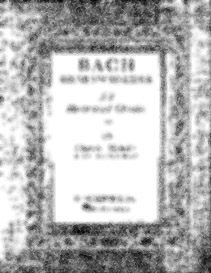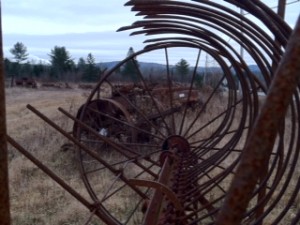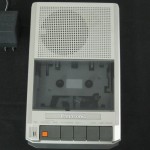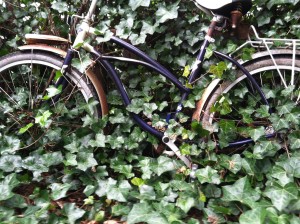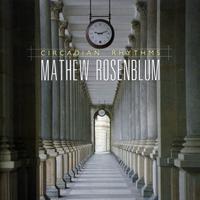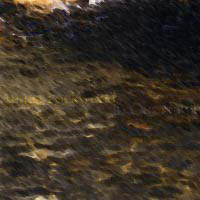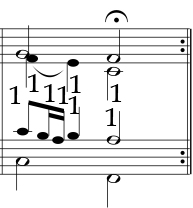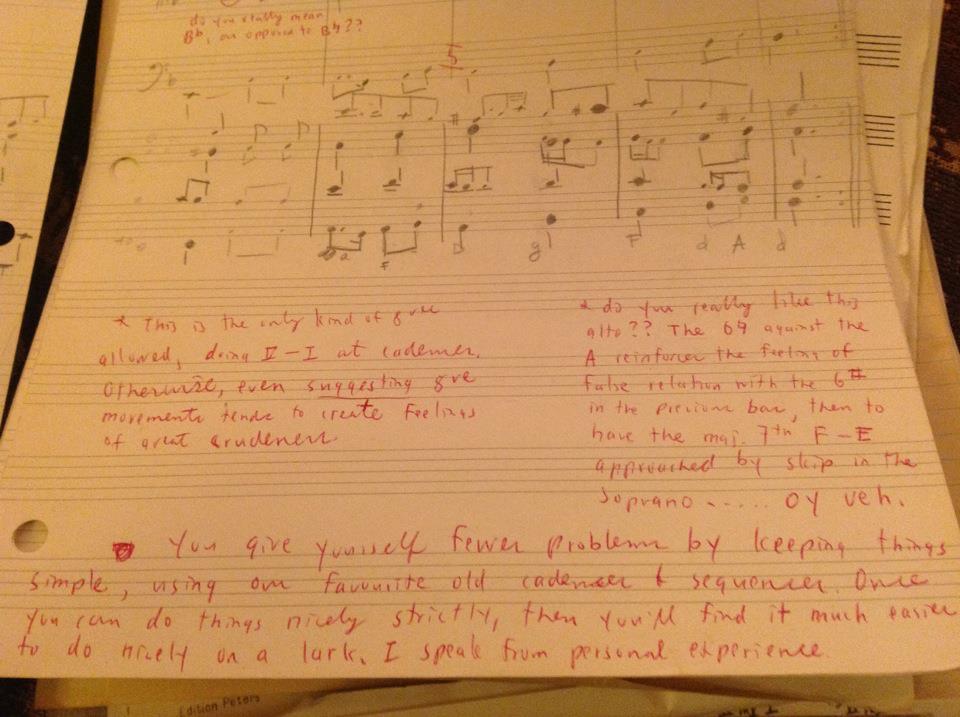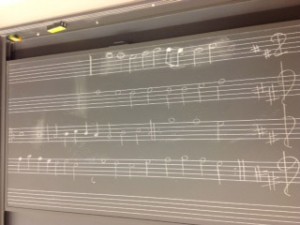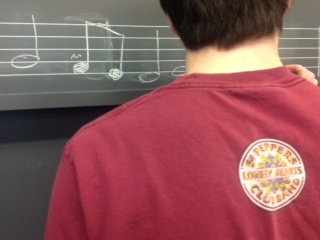January 30, 2013. Up and Down.
One more time I proofread my article concerning good fortune and misfortune and the music of what happens and determine to send it off to Ben. Later, though: it’s unseasonably warm: worrisome for the planet, but conducive for my running. Parking my Insight at the canal, I notice a somewhat shifty-looking (why?) guy; I size up the situation as best I can, pronounce myself safe, and head for the trail. In order to ensure I don’t overdo it, I run three minutes exactly and then make myself turn around to run the three minutes back. I feel blessed to visit my favorite spot in town and to reorient myself at last toward running, another intangible possession, alongside Weakness, that I want to reclaim after the bedlam of the previous year. I lament that I cannot run my desired forty-five minutes yet, but I feel lucky to be starting again, and I am uncharacteristically relaxed as I approach my car. There is no reflection in the driver’s side window. Could I have left it down? Unlikely. But I must have; what else would explain what I see? As I approach my car, the guy in the truck drives off, and I realize that my window has been smashed in; I might have been able to catch him, but it’s too bad I was so blissful and unsuspicious. On the other hand, it’s a good thing I was unable to run longer, since I seem to have interrupted him by returning so soon. It’s also unfortunate that I am without a phone: when I run at the canal, I always leave it at home with my purse just in case my car ever gets violated, even though I know the likelihood of that happening is small. So, on the other hand, it’s a good thing I have foregone my phone, for if I had brought it, I would likely have lost it. Feeling grateful that I’m strong enough to run another few feet, I race off and ask a stranger in the furniture store parking lot to call the police for me. Somehow the police have never heard of the furniture store, which is on—Main Street. Gabby kindly offers to walk me back to my car to inspect the damage. I am kicking myself for being slow to perceive a problem and for missing my chance to chase after the “perp,” but Gabby reassures me that it may be better that I did not run after the pickup truck—“what if he had had a gun?” I observe, bemused, the safety whistle on my lanyard, designed for the trail—“good thing I am so careful!”—but not much use against a getaway pickup truck. Unfortunately, the police are slow—an hour, perhaps longer—but luckily, Gabby’s name suits him in the most delightful way. He describes his work as a upholsterer and laments youngsters’ attraction to new and rickety furniture, but he brightens when I tell him mine was fashioned in Denmark in 1960. He tells me about swimming across Lake Carnegie, down the road: “that was not so smart; what if there had been alligators?” We agree that people in this region are proportionally pushier than in some other places and wonder together whether that may be because there are proportionally more people to push: “it’s just one God, why fight over black or white or different religions?” We ponder the relative advantages of more homogeneous and more heterogeneous societies. He talks about raising four children on his own after his wife left without explanation, and he wishes we would all treat one another better. He never solved the mystery of his wife’s departure, but he observes that one finds a way to keep going even when difficult things happen, that it’s all just part of life, and somehow he sounds more wise than denying, more philosophical than macho, more Pema Chödron than Ayn Rand. I wonder whether his vocation nurtures his ability to recover things; to join and stitch and seal; to render a dispersable object contained, connected and whole. Having learned that he emigrated from Thailand at age fifteen, I wonder aloud whether a Buddhist consciousness may nurture his ability to practice acceptance, and he says yes. Marveling at how fortunate I am, since I almost never leave valuables in my car, even though my friends tease me about my caution, I suddenly remember that I was so organized earlier that I remembered to change out of my expensive eyeglasses with their canal-unfriendly Transitionsâ lenses, trading them for the spare pair I keep in the glove compartment. How lucky I am to have an extra pair—but the extra pair is what I am wearing, and so the thief has taken off with my “real” glasses. What a loss! They are only three months old, but I realize that fortunately the turn of the year has just rendered me eligible for a new pair through my insurance. However, it is unlucky that I will be unable to use that benefit for the new reading glasses I also need. At least, though, I’ll be able to decline the unappealing Transitionsâ option this time around. It’s an expensive revision, to be sure, but I feel fortunate that I have a vision plan at least. Then, when Officer Mohan arrives and asks for my license and registration, I explain that I tend to leave my purse at home when I run, that therefore I have only a photocopy of my license to offer, and I am grateful that he accepts that. But I notice, unfortunately, that my registration and insurance card appear to be missing. I remember that there may have been a spare house key in the glove compartment (or was it to someone else’s house?), next to the eyeglass case, and I begin to worry that I have spent the last hour contentedly chatting with Gabby while the thief may have been availing himself of the possessions I so wisely left safe at home. I ask officer Mohan to help make sure my cottage is secure. He suggests that I call the Princeton police, but I remind him that I am fortunate to be phoneless, and so he calls them for me, and within ten minutes, when I arrive home, they are standing guard at my front and back doors. When I escort the officer inside, I gather the mail, which includes a replacement credit card, which I am happy to see arrived so quickly after I learned yesterday that someone stole my information to buy video games. (I felt lucky then that Citibank texted me about the anomaly.) I apologize to the officer for the untidiness of my house and explain that the pile of rocks just about blocking the front door is part of my work, and he replies that he has four kids and that this mess is nothing. Then he asks how the rocks are part of work, and I explain that I am a composer and I am recording them. He asks, “How do you record a pile of rocks?!” I say, “Oh! I have to play them. I don’t record them at rest.” After the officers depart, I realize that it is two o’clock and that I have not yet had breakfast, so I am feeling light-headed, but I am grateful to find a locksmith who can come by three, though I am disappointed to have to wait even longer to shower, though it’s just as well, because when I finally get warm and wet, enthusiastically soaping and scrubbing, a virtuosic runaway pinky gives me my first ever hygiene-induced nosebleed. Bummer; but once that is attended to, I am pleased to wolf down my sandwich, and the doorbell rings. I’m in luck! But wary: this is not the first time I have entrusted my safety to men who—knows how to change locks. The Second Locksmith—who, if it were not inappropriate, I would describe as “played by James Purefoy,” who also made a compelling Mark Antony —inspects, and I worry that he is casing the joint. After a while, he says, “cute”; and I ask, “The house?” “Yes.” Later I tell the two, “I’ve been trying to hear what language you are speaking—Arabic?” They reply, “Hebrew.” I say, “Well, I was close,” and they smile indulgently. I am grateful that they have not gouged me (the window and nostril were enough slashing for one morning), though I have meantime learned that my car window will not arrive for four days, unless I pay extra, which I do, since I am fortunate to be flying to Cape Breton in a week. However, I did not know I would have all these expenses when I booked my flight last night, and although I have yet to rent the car that will cost more than the plane ticket, I begin the process of feeling insolvent. Window, locks, eyeglasses, planes, hotels, rental cars, upgrades to four-wheel drive in anticipation of a blizzard. (A week later I will find my insurance card and registration and reflect that shelling out for new locks was unnecessary, but I am pleased to have one key for both front and back doors at last.) In any case, as I watch the locksmiths tend the boundary between outside and in, I feel lucky that my person is unharmed and that I have nothing planned for my car for a few days. Later I will observe that over the course of a few hours, I have interacted with six considerate men—and this isn’t even Canada! There were three very professional and helpful police officers, two very professional and considerate locksmiths—and, of course, Gabby, who is as least as reflective as my lost window. (If I include remote interactions, there is also the very helpful Jeff at Honda.) The Second Locksmith says, “I really like the lavender in that vase on the mantel.” I thank him. He says of the vessel, which is made of glass and rests in a rustic iron housing, “It would look even better if you put rice in the bottom to fill in the space.” “What a good idea!” I exclaim, tickled that he has continued to case the cute details of my once-again protected joint; and I explain that the lavender has followed me from home to home and predates my good fortune in owning a cottage with space for a perennial outdoor lavender garden. The First Locksmith interrupts to say that I’ll have to pay 10% extra if I use a credit card, and I have $280, so I am about twenty short. Oh well. I hand him my card and say, “Next time my car gets broken into unexpectedly and I have to change my locks on a half hour’s notice, I’ll make sure to plan ahead and have three hundred dollars in cash on hand.”
By a stroke of ill fortune, a severe storm is predicted for the night, but I am relieved that, while my outer tarp, weighed down by bricks and paint cans, flies across the yard, the car’s vulnerable opening is successfully sheltered by the garbage bag and painter’s tape underneath. A few days later, I drive through my neighborhood, noting another breath of early spring, and I feel fortunate to be able to lower the newly installed window. Later, when I press to close, it rises toward its destination, arrives, and—bounces off the top of the frame and lowers again. Up. Down. Up. Down. It’s unwilling to rest in the closed position: it’s as if my Insight insists on remaining porous, open to the elements. This machinery seems to have has a mind of its own, to discern what is appropriate for a given moment, even if it is neither what I expect nor what I request. I’m transfixed by this automated convenience gone awry, like Jean Tinguely’s mechanized paper-demolishing pen, or the Sorcerer’s Apprentice’s broom. I play my window, marveling at its utterly consistent uselessness, experimenting with varieties of tempo and pressure. Up, down, up, down. U-u-u-p—DOWN!—up, up, up, up . . .
Maybe I won’t bother with a repair this time.



